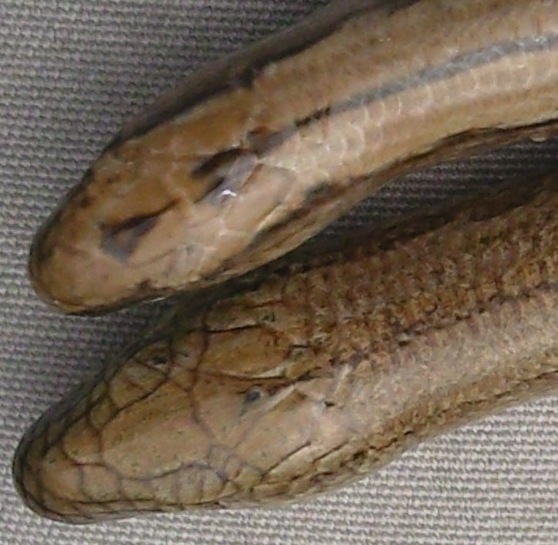 |
 |
parasitic wildflower: |
| Author | Message |
|
ben rigsby Senior Member Joined: 27 Apr 2010 No. of posts: 337 View other posts by ben rigsby |
Posted: 25 Mar 2011 hi folks, wandering along an old haunt (disused Thames and Severn Canal) today, i was surprised to see this unusual plant still growing in pretty much the exact same spot i saw it 20 years ago. how very pleasing! 
TOOTHWORT (lathraea squamaria); 

flower spike is reminiscent of Broomrape (orobanche) or even Butterbur (petasites) eh? not a rarity (although some sources describe the distribution as "scattered") but i havent bumped into it very often myself. a happy encounter for me! interesting species. it parasitises hazel roots and country folk once thought it grew where bodies were buried, hence its alternative name - Corpse Flower. at the risk of boring you (  ) here are one or two other plants i snapped for suz and any other members or visitors with a broader interest. ) here are one or two other plants i snapped for suz and any other members or visitors with a broader interest.
my mum (who came with me  ) has alternative, local names for these first 2; ) has alternative, local names for these first 2;
wood anemone (mum calls them "wet-the-beds"); 
i love the glossy, wildly contrasting, green and red hued leaves of these. shining cranesbill (ma knows these as "rainflowers"); 
she also calls Horse-shoe Vetch "shoes and socks"!! finally, also saw Watercress (right) side-by-side with Fools Watercress. the latter will take over from the former in time no doubt. well thats what usually happens from what ive seen of it anyway!; 
incidentally, Fools is not poisonous but it doesnt taste too good either!  
cheers folks,  ben benDiversity. |
|
Scale Senior Member Joined: 05 Dec 2010 No. of posts: 83  View other posts by Scale |
Posted: 26 Mar 2011 I'm also a keen botanist and finding Toothwort is always a fine surprise. I like the early asparagus looking stage myself. It is an ancient woodland indicator par excellence and is most 'often' found on old remnant boundary banks, sponging off (as you say) stands of ancient Hazel and Elm. Another similar plant, if you like your Broomrape looking parasites, and if you can find it is Yellow Bird's-nest which sponges off the fungus associated with the roots of Hazel, Beech and Sallow species. Lovely golden colour. There are only two extant sites for it in my county but i usually take a trip to see it in late summer. Cheers |
|
ben rigsby Senior Member Joined: 27 Apr 2010 No. of posts: 337 View other posts by ben rigsby |
Posted: 27 Mar 2011 thanks for the additional info on Toothwort - that its a first-class bioindicator. tho it doesnt surprise me. sadly, your disclosure only fuels my anger at proposed plans to spend millions reopening this long-disused and never successful canal - purely in the interests of tourism, commerce and nostalgia. id better shut up though. ive already vented my spleen (copiously and voraciously) regarding this "restoration" on RAUK already! 
yes ive kept an eye out for YBN but not spotted it thus far. hopefully soon! all the best Diversity. |
|
Suzi Senior Member Joined: 06 Apr 2005 No. of posts: 860 View other posts by Suzi |
Posted: 27 Mar 2011 Never heard wood anemones called that Ben. Dandelions something similar though pi** a bed. In the Lake District we called wood anemones wind flowers. There's a woodland area in Yorkshire I know that is full of toothwort at this time. The Undercliff at Lyme Regis has lots of broomrapes. Suz |
|
Scale Senior Member Joined: 05 Dec 2010 No. of posts: 83  View other posts by Scale |
Posted: 27 Mar 2011 Wood Anemone and Wild Alium are also AW Indicators, looks like a nice piece of woodland/hedgerow you got there Ben. I thought i might have seen a piece of Moschatel emerging in the background too (another AWI), which is known as the Townhall Clock in these parts. I wager your on limestone/clay. Of tidy stuff, there's never too much |
|
ben rigsby Senior Member Joined: 27 Apr 2010 No. of posts: 337 View other posts by ben rigsby |
Posted: 28 Mar 2011 youre just like me suz - remembering everywhere youve ever seen a particular plant! 
believe it or not, i grew up with someone who was terrified of dandelions (Taraxacumphobia??). show him one and he would run away screaming and since our garden was full of dandelions he would never visit me at home either. yes, limestone Rob but light soil. valley floor (this is the Cotswold Hills) so the rock varies in form from that higher up. cheers Diversity. |
- parasitic wildflower |